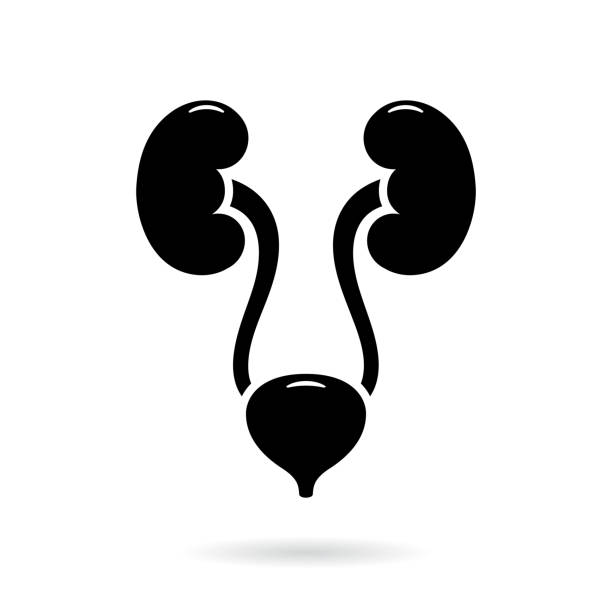+918042755642

This is your website preview.
Currently it only shows your basic business info. Start adding relevant business details such as description, images and products or services to gain your customers attention by using Boost 360 android app / iOS App / web portal.
Description
Chronic Kidney Disease (CKD) is a progressive loss of kidney function over time. CKD is typically diagnosed when kidney function declines for at least three months, and if untreated, it can lead to end-stage renal disease (ESRD), where kidneys are no longer able to function effectively, requiring dialysis or a kidney transplant. While CKD cannot be reversed, treatment aims to slow progression, manage symptoms, and prevent complications. Goals of CKD Treatment: Slow progression of kidney disease. Manage symptoms and complications (e.g., hypertension, diabetes, electrolyte imbalances). Delay the need for dialysis. Prevent cardiovascular disease, which is a leading cause of death in CKD patients. Improve quality of life. Treatment Strategies for Chronic Kidney Disease (CKD): Managing Underlying Conditions: Diabetes: Proper control of blood sugar levels is critical. The kidneys are especially vulnerable to high blood glucose, which can worsen kidney damage. Medications: Insulin, oral hypoglycemics, or SGLT2 inhibitors (which have kidney-protective effects) are commonly prescribed. Monitoring: Regular blood sugar checks, A1C monitoring, and eye and kidney screenings. Hypertension: High blood pressure accelerates kidney damage, so controlling it is essential for CKD management. Blood Pressure Targets: The goal is usually a BP of 130/80 mm Hg or lower. Medications: Common drugs include ACE inhibitors (e.g., enalapril, lisinopril), angiotensin receptor blockers (ARBs) (e.g., losartan, valsartan), calcium channel blockers, and diuretics. Lifestyle Changes: Reducing sodium intake, regular exercise, and weight management. Hyperlipidemia (High Cholesterol): Elevated cholesterol levels contribute to cardiovascular risk and kidney disease progression. Statins (e.g., atorvastatin) or other lipid-lowering drugs are commonly prescribed to control cholesterol levels. Diet: Low-fat, heart-healthy diet with emphasis on fruits, vegetables, and whole grains. Obesity: Weight loss can reduce kidney stress and improve other underlying conditions (e.g., diabetes, hypertension). Lifestyle: A balanced diet, exercise, and sometimes weight-loss medications or surgery. Medications: Angiotensin-Converting Enzyme (ACE) Inhibitors and Angiotensin Receptor Blockers (ARBs): These medications are used to lower blood pressure and reduce proteinuria (protein in urine), a marker of kidney damage. They help protect the kidneys by dilating blood vessels and reducing the workload on the kidneys. Sodium-Glucose Co-Transporter-2 (SGLT2) Inhibitors: Newer medications like empagliflozin and dapagliflozin have been shown to have protective effects on the kidneys and heart in patients with CKD and diabetes. Diuretics: These help reduce fluid buildup and prevent edema (swelling), which is common in later stages of CKD. Loop diuretics (e.g., furosemide) and thiazide diuretics are commonly used. Phosphate Binders: When kidney function declines, phosphate can build up in the blood. Phosphate binders (e.g., sevelamer, calcium carbonate) help control phosphate levels. Erythropoiesis-Stimulating Agents (ESAs): Used for the treatment of anemia (a common complication of CKD) by stimulating red blood cell production. Epoetin alfa and darbepoetin alfa are examples. Vitamin D and Calcium Supplements: CKD patients often have abnormal calcium and phosphate metabolism. Vitamin D supplements (e.g., calcitriol) help maintain bone health and manage mineral imbalances. Potassium Binders: In cases of hyperkalemia (elevated potassium levels), medications like patiromer or sodium polystyrene sulfonate can be used to lower potassium. Dietary Changes: Low-sodium diet: Reducing sodium intake (less than 2,300 mg per day) helps control blood pressure and reduces the burden on the kidneys. Protein management: Reducing protein intake may reduce kidney workload, especially in the early stages of CKD. However, too low a protein intake can lead to malnutrition, so it's essential to balance this. Recommended protein intake typically ranges from 0.6 to 0.8 grams per kilogram of body weight per day, depending on the stage of CKD. Phosphate control: Foods high in phosphorus (e.g., dairy, nuts, beans, processed foods) should be limited. Potassium and fluid restriction: In later stages of CKD or when on dialysis, potassium and fluid intake may need to be monitored and restricted to prevent dangerous imbalances. Dialysis: For patients with stage 5 CKD (end-stage renal disease or ESRD), dialysis may be required to perform the kidneys' vital functions. Hemodialysis: Blood is filtered through an external machine to remove waste products and excess fluids. Peritoneal Dialysis: The abdominal cavity is used as a natural filter to remove waste and fluid. Timing for Dialysis: Dialysis is typically started when kidney function declines to the point where the kidneys can no longer maintain balance and homeostasis (usually when GFR falls below 15 mL/min). Dialysis Access: A vascular access (e.g., AV fistula, AV graft, or catheter) is necessary for hemodialysis, while a catheter is needed for peritoneal dialysis. Kidney Transplant: Kidney transplantation is the most effective treatment for ESRD and provides the possibility of a cure. A transplant may be from a living donor or a deceased donor. Post-transplant, immunosuppressive medications are required to prevent organ rejection. Kidney transplant patients require lifelong follow-up and medication management to maintain the health of the transplanted kidney. Management of Complications: Anemia: Erythropoiesis-stimulating agents (ESAs), iron supplements, and managing the underlying causes of anemia (such as low iron or inflammation) are essential. Bone Disease: CKD disrupts calcium and phosphate balance, leading to renal osteodystrophy. Medications like phosphate binders, vitamin D supplements, and calcimimetics (e.g., cinacalcet) are used to manage this. Fluid and Electrolyte Imbalances: Regular monitoring of sodium, potassium, calcium, and phosphate levels is crucial to prevent life-threatening complications like arrhythmias and seizures. Acidosis: In cases of metabolic acidosis, bicarbonate supplementation may be prescribed to help balance pH levels in the blood. Monitoring and Regular Check-ups: Regular follow-up appointments are essential for monitoring kidney function (serum creatinine, GFR), blood pressure, and managing complications. Patients with CKD should also undergo regular tests for albuminuria (protein in the urine), electrolyte levels, and anemia status. Lifestyle Modifications: Exercise: Regular physical activity helps control blood pressure, maintain a healthy weight, and improve overall health. However, high-intensity exercise should be avoided in later stages of CKD. Smoking cessation: Smoking accelerates kidney disease progression and increases cardiovascular risk. Stress management: Chronic stress can worsen hypertension and contribute to poor health outcomes, so techniques like yoga, meditation, and relaxation exercises are beneficial. Weight management: Maintaining a healthy weight helps reduce strain on the kidneys and improves overall health. Conclusion: The treatment of Chronic Kidney Disease (CKD) involves a comprehensive approach that focuses on managing underlying causes like diabetes and hypertension, controlling symptoms, slowing disease progression, and preventing complications. Medications, lifestyle changes, dietary modifications, and regular monitoring are all critical elements of treatment. For patients with advanced CKD, dialysis or kidney transplantation may be necessary. Early diagnosis and intervention are key to improving outcomes and slowing the progression of CKD.

